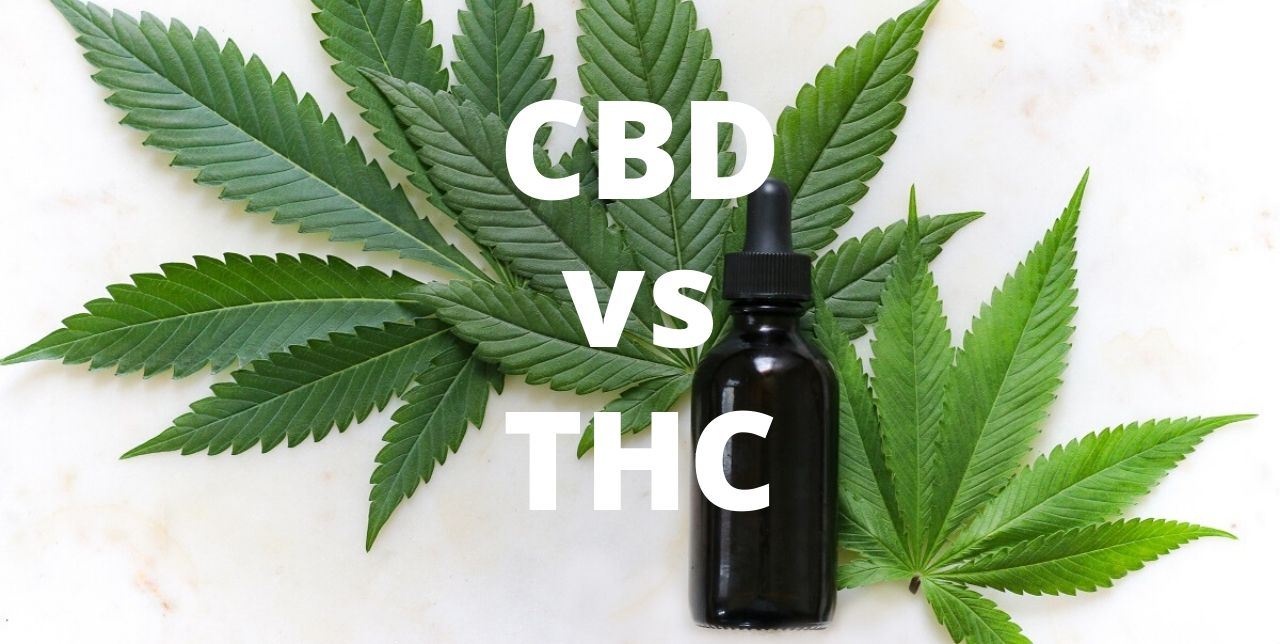Since the legalization of cannabis in 2018, the question of CBD vs THC has become a hot topic. Though the science is young and more research is needed to fully understand how CBD (Cannabidiol) and THC (Delta-9 tetrahydrocannabinol) function to deliver their medical benefits, there’s no question anymore that both CBD and THC can be beneficial. Though there’s no conclusive evidence for many of the claims being made yet, there’s a tremendous amount of anecdotal evidence piling up from people trying these cannabinoids for their conditions, as well as from doctors supervising medical cannabis use in their patients, and medical professionals involved in relevant studies.
CBD vs THC – What are the main differences?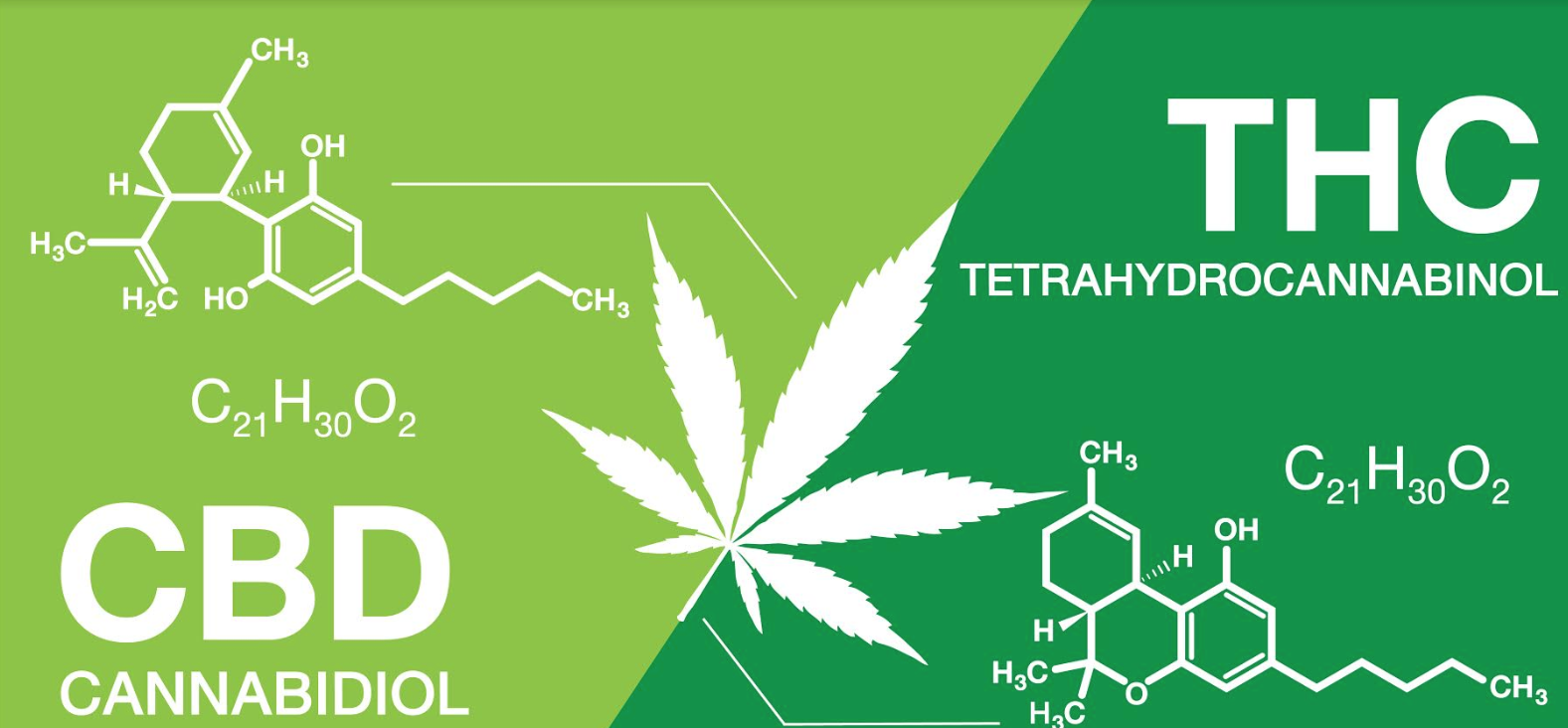
CBD and THC have much in common. They are both phytocannabinoids produced by cannabis plants—THC from marijuana and CBD from hemp, and have very similar chemical compositions: 21 carbon atoms, 30 hydrogen atoms, and two oxygen atoms. However, a subtle difference in how their molecules are arranged causes a big difference in chemical properties and effects on bodily systems.
The simplest way to explain the difference when thinking of CBD vs THC is to highlight how they make you feel. Whereas THC’s effects are very strongly felt—think of a “buzz” that gives pleasant physical sensations of intoxication, happy thoughts, various auditory and visual effects (which might be considered impairment or enhancement depending on your perspective), increased appetite, more powerful orgasms and more, CBD’s effects are far more subtle. With CBD, the effects emphasize what you stop feeling—think an absence of pain, anxiety, and depressing thoughts. Many users report that they don’t noticing anything until they realize they’ve stopped snapping at their kids or limping because of their bum knee.
That’s not to say people who use CBD never feel any effects. A strong dose can make you feel very sleepy, deeply relaxed and clear your mind. But much of how CBD functions has to do with inhibiting the production or perception of bad feelings, thoughts and sensations.
Both CBD and THC have powerful medicinal properties but act on our bodies in different ways.
CBD and THC – how these cannabinoids affect our bodies
First up: THC. THC interacts with your body’s CB1 receptor and acts as an agonist, or activator. When people absorb THC, blood flow increases to the prefrontal cortex—the region responsible for decision-making, attention, motor skills and other executive functions. THC also stimulates your brain’s reward system, which works with emotional and memory processes, creating pleasant sensations and feelings (for the most part), increased creativity, libido and relaxation.
 What’s most notable when comparing CBD vs THC is that cannabidiol does not produce sensations of euphoria. Despite also being a cannabinoid—the second most abundant cannabinoid in cannabis in fact—CBD actually diminishes the “high” from THC by inhibiting THC’s activation of CB1 receptors. Even though CBD does not get you “high,” it actually is psychoactive—in fact, any substance that directly affects brain function is! CBD’s powerful anti-seizure and anti-anxiety properties leave no doubt that CBD is psychoactive, just in a way that’s different from THC.
What’s most notable when comparing CBD vs THC is that cannabidiol does not produce sensations of euphoria. Despite also being a cannabinoid—the second most abundant cannabinoid in cannabis in fact—CBD actually diminishes the “high” from THC by inhibiting THC’s activation of CB1 receptors. Even though CBD does not get you “high,” it actually is psychoactive—in fact, any substance that directly affects brain function is! CBD’s powerful anti-seizure and anti-anxiety properties leave no doubt that CBD is psychoactive, just in a way that’s different from THC.
Interestingly, when CBD and THC are used together the results are that people will generally experience a more mild high and a much lower chance of paranoia compared to using THC alone. That’s because CBD prevents THC from activating CB1 receptors, essentially by crowding the receptor site and blocking it off. A February 2010 study indicated that CBD and THC can have completely opposite effects on brain function, which may explain how CBD dampens THC’s psychoactive effects. However, that doesn’t mean both compounds can’t be used together. In fact, using CBD and THC together can be highly beneficial.
For example, CBD may protect your brain from heavy THC use. In studies on the cognitive effects of heavy cannabis use, participants given cannabis with higher levels of CBD scored better for memory recall than those with lower doses of CBD. A 2013 study found that those who had been given CBD before THC showed less memory impairment than patients given a placebo.
In fact, it’s becoming clear that CBD’s powerful anti-oxidant qualities make it a potent neuroprotective agent which not only reduces damage in the brain and nervous system, but also stimulates the development of new neurons. Oxidative damage from traumatic blows, ischemia, or autoimmune and genetic disorders can cause significant neural damage, but studies show CBD is a capable protective agent against this damage and helps improve recovery.
Additionally, CBD may help prevent THC-induced psychosis. In two population-based studies those using only THC were more prone to psychosis (or schizophrenia-like symptoms) than those using both THC and CBD. A March 2018 study also found that CBD helped reduce symptoms in patients with schizophrenia when used in conjunction with medication.
Cannabinoid medical benefits
There’s a lot of overlap when it comes to all the medical conditions CBD and THC can help with. Though uses vary between the two, it’s also true that CBD and THC can often be used together to treat some conditions, including Dravet’s syndrome, arthritis pain and epilepsy.
CBD has been used to help treat:
- Inflammatory bowel disease
- Seizures
- Depression
- Pain and inflammation
- Psychosis / mental disorders
- Migraines
- Nausea
- Migraines
- Depression
- PTSD and anxiety
- Epilepsy and seizure disorders
- Crohn’s disease
- Multiple sclerosis
- Opioid withdrawal
- PMS cramps
- Endometriosis
- Acne, rosacea, eczema and skin dryness
THC has potential for treating:
- Glaucoma
- Muscle spasticity
- Low appetite
- Insomnia
- Multiple sclerosis pain
- Nerve pain
- Parkinson’s disease tremors
- Nausea
CBD and THC side effects
According to the World Health Organization, CBD is well-tolerated in people even in large doses. Though THC can have a few mild side effects, CBD doesn’t really have any. What’s more, CBD is safe in large doses—there are no instances of overdose. However it should be noted that CBD can interfere with other medications, so it’s important to speak to medical professional first if you are on any medication.
This isn’t to say that there are no possible unwanted effects from CBD whatsoever. It is possible for people who take far too much to experience diarrhea, appetite changes, and fatigue.
THC, for it’s part, can cause a few temporary side effects, including:
- increased heart rate
- coordination problems
- dry mouth
- red eyes
- slower reaction times
- memory loss
Neither CBD or THC has ever been fatal. However, heavy THC use may lead to long-term negative psychiatric effects, especially in the case of adolescents who are heavy THC users. THC’s effect on the brain is more pronounced in teens and increases the risk of psychiatric disorders like schizophrenia.
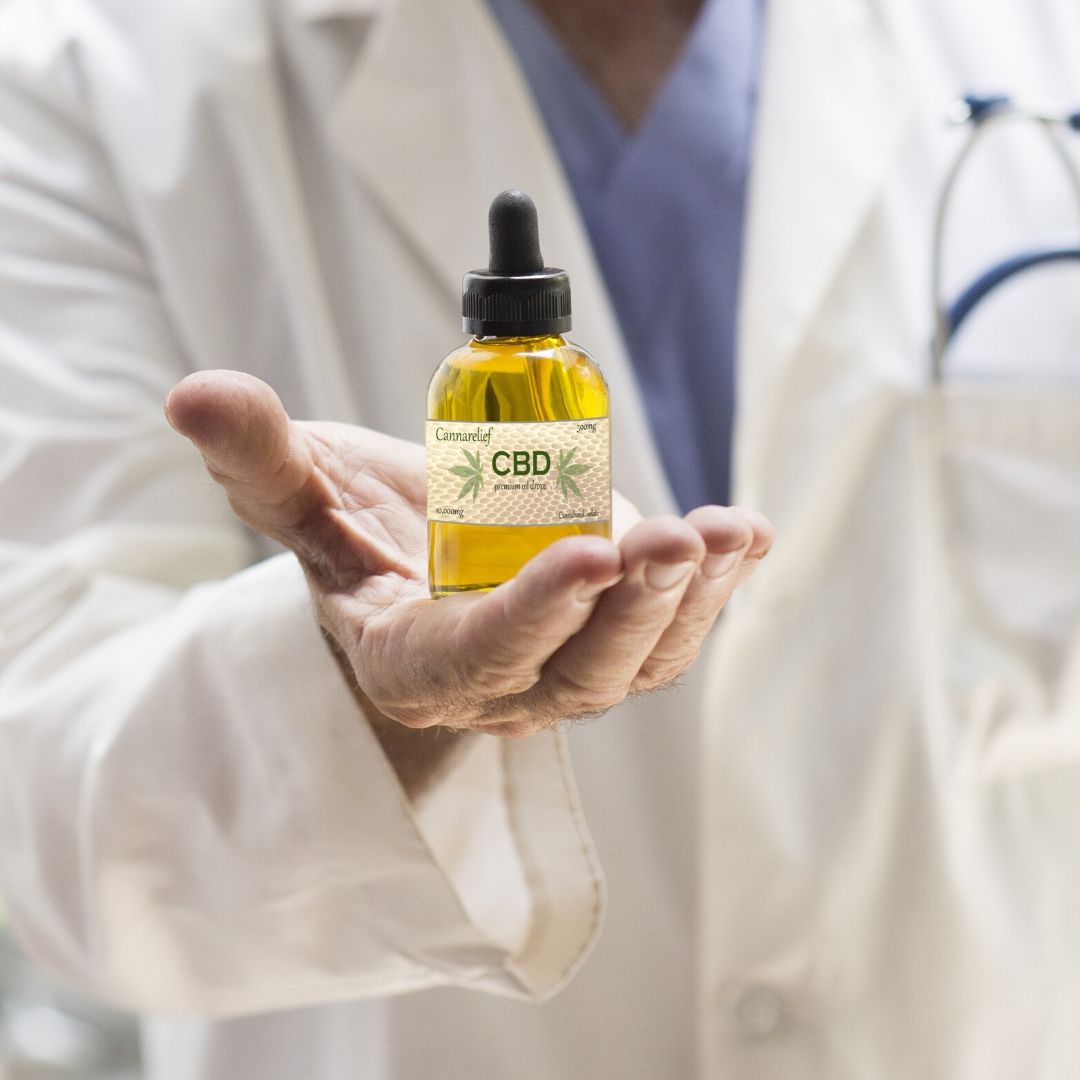 Cannabinoids and their legality
Cannabinoids and their legality
In Canada and the US, it became fully legal to consume CBD in 2018. However, in Canada there is a bit of difficulty in finding legally-made products due to Health Canada’s prohibitive standards. As a result, a large number of grey-market producers have emerged looking to serve the rapidly growing CBD wellness market.
The legality of CBD for professional athletes is also somewhat complicated. The World Anti-Doping Agency removed CBD from its banned substances list and in the US and UK, CBD is permitted in sport. However—THC is banned. This makes it extremely important for athletes to source CBD products which contain no THC. Full Spectrum CBD products contain enough THC to be detectable in tests. Therefore, for athletes, THC-free products are a must.
CBD vs. THC: Drug testing
For anyone who must submit to drug testing, regularly or otherwise, it’s important to know that many CBD products do contain trace amounts of THC. Although Full Spectrum CBD products contain less than 0.3% THC, it’s still possible for these products to produce positive results for drug tests—bad for anyone whose profession forbids THC use. If that’s true for you, you’ll want to look for Broad Spectrum CBD products or pure CBD products that are THC-free. There’s much more to consider than just CBD vs THC! Learn more about the difference between Full Spectrum, Broad Spectrum and Isolate
Is there THC in CBD Oil?
This can be confusing for some, as when you buy CBD Oil you might not expect there to be any THC. However, Full Spectrum CBD Oil will contain 0.3% THC or less. Why? Full Spectrum CBD Oil contains the full range of cannabinoids naturally present in cannabis plants. This is preferable for some as Full Spectrum CBD Oil produces what’s known as the “entourage effect” in which various cannabis compounds like cannabinoids, terpenes and flavonoids work together to produce improved medicinal effects.
CBD and THC: the takeaway
When comparing CBD vs. THC is important to remember that both offer a broad range of medical benefits. They’re also both quite safe for human consumption, but it’s important to remember that CBD can interact with other medications, and that THC can be harmful to brain development in youth if abused. It’s always a good idea to speak with a medical professional if you’re considering treating any ailment with either of these cannabinoids.
Additional resources:
- Read more about CBD, what we know and what we don’t, from Harvard Medical School.
- Find out about advances in cannabinoid research from Raphael Mechoulam at the Hebrew University of Jerusalem.
- Canada’s Dani Gordon specializes in Cannabis medicine. Her YouTube channel is highly informative for those seeking education about the benefits of CBD oil in Canada.
- Learn the ins and outs of CBD and its effects on pain, anxiety, sleep, women’s health and skin issues in our article CBD 101
Learn more about CBD

CBD and Stress: How Cannabinoids Help You Stay Calm in a Busy World
If it feels like life keeps getting louder and faster, you’re not alone.Between deadlines, notifications, and never-ending to-do lists, most of us are
read more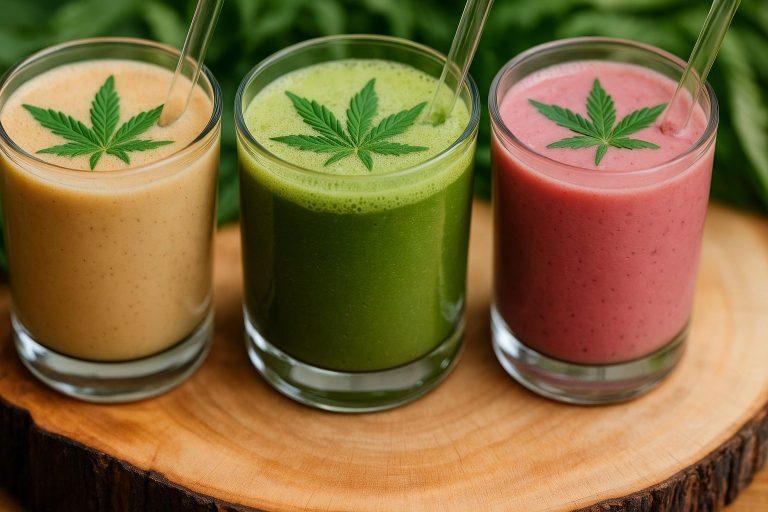
CBD Smoothie Recipes You’ll Actually Love
🥤 Simple, delicious ways to enjoy your daily CBD oil. Why Add CBD Oil to Your Smoothie? Smoothies are already a great way to
read more
A Calm Routine: How to Use CBD Skincare from Morning to Night
If your skincare shelf is starting to look more like a science lab, you’re not alone. These days, there’s a serum or cream
read more
From Mouse to Marathon: Can CBD Support Endurance Through the Gut?
Gut health has become a growing focus in the wellness world, and for good reason. The gut microbiome affects digestion, immunity, and even
read more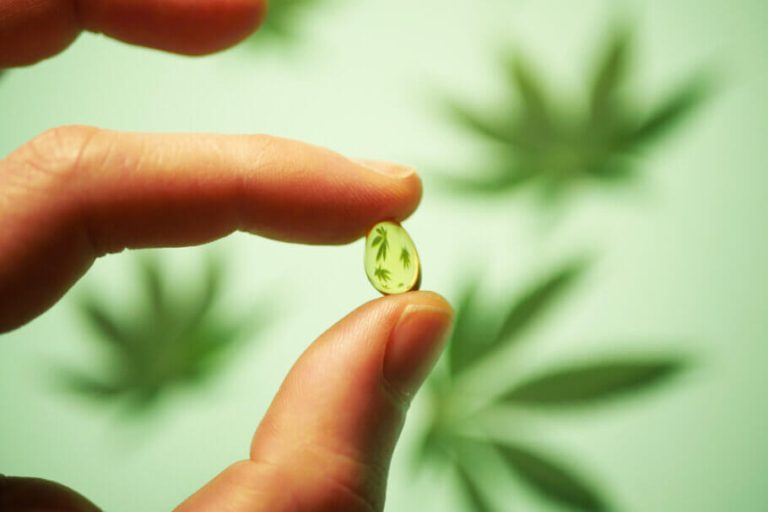
Microdosing CBD: Why Less is More
Many assume that more CBD means better results, but that’s not always true. Instead, taking smaller doses more frequently may be a smarter
read more
Sleep Naturally: How CBD, CBG, and CBN Can Enhance Your Rest
Quality sleep is essential, yet modern lifestyles often leave us restless. With rising stress levels and digital distractions, many are turning to natural
read more
